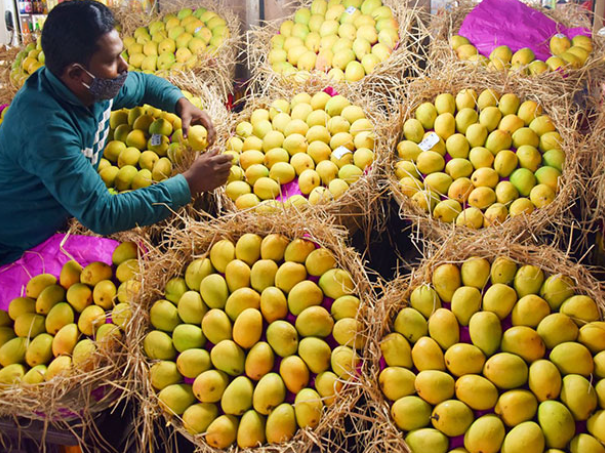
Climate change has become a critical issue worldwide, prompting governments to prioritise it in policy-making. Amidst this global concern, farmers in hill states like Uttarakhand are grappling with a significant decline in both the quantity and quality of fruit crops.
At a Consultation Workshop titled ‘Climate Resilient Agriculture in India: Opportunities and Challenges’, held in Delhi on Tuesday, climate experts and farmers discussed how Uttarakhand, known for its rich agro-climatic conditions, has seen a drop in fruit yields due to rising temperatures, erratic rainfall, and extreme weather events.
The event was organised by Climate Trends, a research-based consulting initiative, in collaboration with the Indian Agriculture Research Institute (IARI).
A study by Climate Trends revealed that the area under fruit cultivation in Uttarakhand has decreased by 54%, with total fruit yields dropping by 44%. Fruits such as mango, litchi, and guava have been particularly affected.
Experts highlighted how extreme heat and rainfall events have led to increased cases of sunburn, fruit cracking, and fungal infections. Rising temperatures and shifting weather patterns have worsened pest infestations, disrupted pollinator activity, and accelerated soil degradation.
Bhawana Joshi, Senior Entomologist at the State Apiculture Centre, Department of Horticulture and Food Processing in Uttarakhand, expressed concern over the trend. She noted that apple production, which was thriving a decade ago, has significantly declined.
Deep Belwal, a farmer who participated virtually, shared his experiences with the challenges fruit growers face due to climate change. He emphasised how both the quality and quantity of their produce have diminished.
“The winter is now shorter and harsher, with temperatures rising sharply after spring. This has reduced fruit sizes and, in some cases, led to abnormal expansion in mangoes. There has also been an increase in fruit drop, particularly in langra mangoes,” he explained.
“Massive fruit drops were observed in langra mangoes in May and June. Litchi crops were also impacted by the high temperatures,” he added.
In an interview with ANI, Bhawana Joshi outlined the state government’s initiatives to support farmers amidst these challenges, including encouraging diversification into different crop varieties.
“We are subsidising farmers to grow different apple varieties. The government has allocated significant funds for these schemes and is also promoting crop insurance, where the government covers most of the cost. Additionally, we are encouraging the cultivation of crops less affected by climate change. These efforts should yield positive results in the coming days,” Joshi said.
She also mentioned the central government’s Pradhan Mantri Krishi Sinchayee Yojana (PMKSY), which prioritises water conservation and management. “Through this scheme, we are growing mangoes and litchis with minimal water, helping to mitigate the impact of climate change,” she added.
To address the issue, farmers are adopting climate-resilient practices such as high- density orchards, introducing low-chill apple and peach varieties, and shifting to drought-tolerant crops like dragon fruit and kiwi.
Vishwa Bandhu Patel, Assistant Director General of Fruit and Plantation Crops at ICAR-IARI, highlighted how farmers are adapting to these challenges. He pointed out that climate change has both positive and negative impacts, and it is essential to make the best of available opportunities.
He also mentioned that, despite the challenges, farmers in Uttarakhand and Himachal Pradesh are now able to grow apples and mangoes in September and October, with increased potential for cultivating other fruits like dragon fruit, blueberry, and kiwi.
Article Credit: aninews